The 2019 meeting of the American Society of Criminology – the 75th meeting – took place in San Francisco between 13 and 16 November. For those who have not attended a meeting previously, this is a big event. Almost 5000 people attend, and the conference program is 472 pages long.
Rural criminology continues to grow. A search of the program using the keyword “rural” resulted in 81 entries: a clear demonstration of how much rural criminology has indeed grown.
Some selected conference highlights
A number of themed panels were arranged, providing an opportunity for rural criminologists to share their research with one another, but importantly, too, to share with other colleagues from across the broader criminology field.
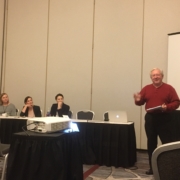
Joe Donnermeyer
A session on qualitative rural research, chaired by Rashi Shukla from the University of Central Oklahoma, contained presentations from Rash and her colleague Melissa Inglis from East Central University; Jessica Peterson from Indiana University; an Alison Cox from the University of Northern Iowa. Each presentation shed interesting light on the some of the challenges of rural field work research – filling the car with petrol, taking a cut lunch, being very organised and other practical considerations for example.
A roundtable on these challenges was also convened by our own ISSRC president Joe Donnermeyer with Rashi Shukla and another roundtable on the future of rural criminology led to an informal exchange of ideas which will no doubt lead to ongoing and productive collaborations.
Joe Donnermeyer also arranged a themed panel on farm crime victimisation, with presentations from Alistair Harkness (Federation University in Victoria, Australia), Vania Ceccato (Royal Institute of Technology, Sweden) and Matt Bowden and Artur Pytlarz (Dublin Institute of Technology, Ireland).
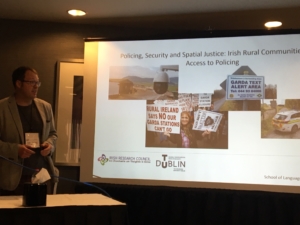
Artur Pytlarz
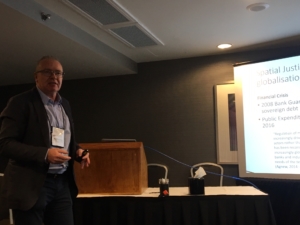
Matt Bowden

Vania Ceccato
Demonstrating the internationality of both the conference and contemporary research, a themed panel canvassed issue around rural crime in China and two sessions additional sessions addressed issues around rural access to justice.
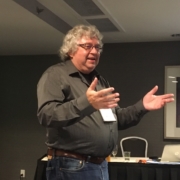
Ralph Weisheit
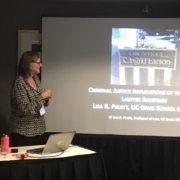
Lisa Pruitt
Two other roundtables – one on technology and rural criminology organised by ISSRC Treasurer Bridget Harris, Queensland University of Technology) and on rural crime prevention organised by ISSRC secretary Alistair Harkness) were other highlights and, again, led to scintillating discussions.
Of course, other rural related papers were dotted throughout the conference. To take but just one example, Tarah Hodgkinson (Griffith University), for instance, presented her research on perceptions of crime and safety in a small rural community in Saskatchewan in a panel with three other urban-focused papers centred on the theme of community perceptions of crime.
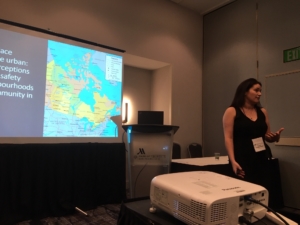
Tarah Hodgkinson
Of course, it is not just the formal aspects of as conference such as this which allow for sharing of research and perspective, but the “sidelines” discussions over coffee, drinks and meals also generate an enormous degree of good will and collaborative spirit which bodes extremely well for the months and years ahead.
The Division of Rural Criminology
The Division of Rural Criminology is now well established, and at its annual general meeting many of the Board members were introduced:
Chair: Joseph F. Donnermeyer
Vice-Chair: Walter DeKeseredy
Secretary-Treasurer: David May
Executive Counselors: Kyle Ward and Ralph Weisheit
Student Representative: Ashley Lockwood
A highlight, without doubt, was the awarding of the inaugural rural criminologist of the year plaque to Ralph Weisheit.
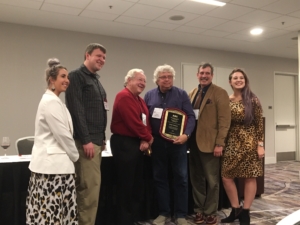
L-R: Danielle Stoneberg; Kyle Ward; Joe Donnermeyer; Ralph Weisheit; Walter DeKeseredy; Gabrielle Lory
More information on the Division, including its newsletters and membership details, can be found on the Division’s website.
ASC 2020
The 76th meeting of the ASC will be held in Washington DC between 18 and 21 November 2020. The theme is “Crime and justice theory and research: Thinking outside the box”. Much opportunity for rural criminologists to present their work and continue the expansion of rural crime scholarship into the future.
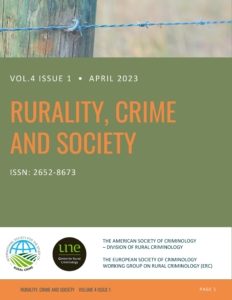
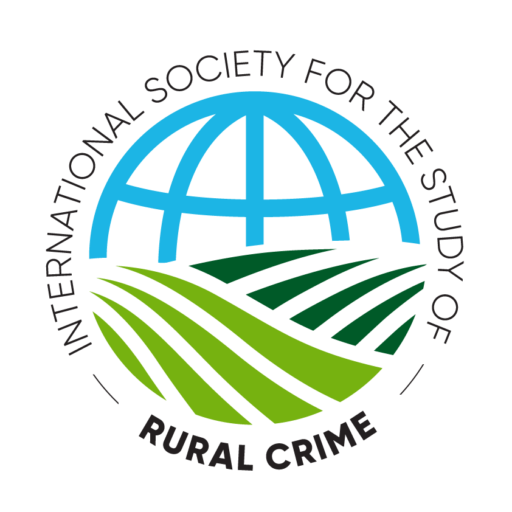
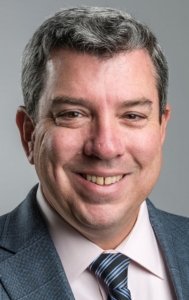 Dr Thomas received a BA from St. Joseph’s University, and an MA and PhD from the University of Maryland, College Park. He teaches political science, criminal justice, and public administration in the department’s undergraduate and graduate programs. He is the coordinator of the MA in Political Science program, and is the internship coordinator for the MPA program. His research focuses on both urban politics, including work on New Orleans (Reforming New Orleans: The Contentious Politics of Change in the Big Easy with Peter Burns, Cornell Press), and on criminal justice topics, including work on police strength, concealed weapons on campus, and the impacts of AB 109 and Prop 47 on California’s criminal justice realignment agenda. Matt received the university’s Outstanding Service Award in 2016-17.
Dr Thomas received a BA from St. Joseph’s University, and an MA and PhD from the University of Maryland, College Park. He teaches political science, criminal justice, and public administration in the department’s undergraduate and graduate programs. He is the coordinator of the MA in Political Science program, and is the internship coordinator for the MPA program. His research focuses on both urban politics, including work on New Orleans (Reforming New Orleans: The Contentious Politics of Change in the Big Easy with Peter Burns, Cornell Press), and on criminal justice topics, including work on police strength, concealed weapons on campus, and the impacts of AB 109 and Prop 47 on California’s criminal justice realignment agenda. Matt received the university’s Outstanding Service Award in 2016-17.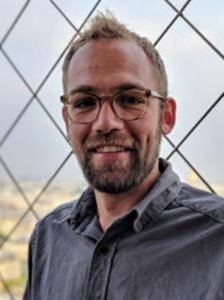 Dr Jacquet is an Associate Professor of Rural Sociology in the School of Environment and Natural Resources at The Ohio State University in Columbus, Ohio, USA. One of the first to study the community-level implications of hydraulic fracturing, Dr Jacquet has gone on to examine the social ramifications of a range of renewable- and non-renewable-energy systems at institutions including the University of Wyoming, Cornell University, and South Dakota State University. At Ohio State, Jacquet leads students through coursework, research, and mentorship to examine the areas of energy, environment, and rural societies. He is the lead editor of a new collected volume titled Energy Impacts: A Multidisciplinary Exploration of North American Energy Development published in 2021 by the University Press of Colorado.
Dr Jacquet is an Associate Professor of Rural Sociology in the School of Environment and Natural Resources at The Ohio State University in Columbus, Ohio, USA. One of the first to study the community-level implications of hydraulic fracturing, Dr Jacquet has gone on to examine the social ramifications of a range of renewable- and non-renewable-energy systems at institutions including the University of Wyoming, Cornell University, and South Dakota State University. At Ohio State, Jacquet leads students through coursework, research, and mentorship to examine the areas of energy, environment, and rural societies. He is the lead editor of a new collected volume titled Energy Impacts: A Multidisciplinary Exploration of North American Energy Development published in 2021 by the University Press of Colorado. Dr O’Connor is an Associate Professor of Criminology at Ontario Tech University. He received his PhD in Sociology from the University of Calgary where he studied school-to-work transitions and perceptions of crime in the energy boomtown of Fort McMurray, Alberta. His research examines energy resource boomtowns, people’s use and perceptions of emerging technology, policing, and young people’s participation in crime, perceptions of the environment, and school-to-work transitions. Dr O’Connor has recently completed a SSHRC Insight Development Grant examining the risks and opportunities of hydraulic fracturing and related renewable and non-renewable energy technologies. He is currently co-director on a SSHRC-funded Partnership Development grant examining facial recognition use by the police which involves working with a range of multi-disciplinary stakeholders to examine the viability of the technology for police use.
Dr O’Connor is an Associate Professor of Criminology at Ontario Tech University. He received his PhD in Sociology from the University of Calgary where he studied school-to-work transitions and perceptions of crime in the energy boomtown of Fort McMurray, Alberta. His research examines energy resource boomtowns, people’s use and perceptions of emerging technology, policing, and young people’s participation in crime, perceptions of the environment, and school-to-work transitions. Dr O’Connor has recently completed a SSHRC Insight Development Grant examining the risks and opportunities of hydraulic fracturing and related renewable and non-renewable energy technologies. He is currently co-director on a SSHRC-funded Partnership Development grant examining facial recognition use by the police which involves working with a range of multi-disciplinary stakeholders to examine the viability of the technology for police use.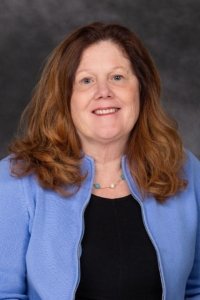 Professor Heitkamp served as a faculty member at the University of North Dakota for 39 years, achieving the highest rank of Chester Fritz Distinguished Professor. She is currently an Emeritus faculty and a Licensed Clinical Social Worker in North Dakota. She also serves as a Behavioral Health Research Specialists for the University of North Dakota – Office of Research and Economic Development. Professor Heitkamp served as Co-PI for a National Institute of Justice-funded three-year study to examine the impact of oil development on inter-personal violence in the Bakken Oil fields of North Dakota and Montana. She has served as the PI on several large grant-funded projects including her service as PI and Co-Director of the Mountain Plains Mental Health Technology Transfer Center and Addiction Technology Transfer Center (ATTC). She has published in a host of peer-reviewed journals with a focus on workforce development serving tribal and rural communities.
Professor Heitkamp served as a faculty member at the University of North Dakota for 39 years, achieving the highest rank of Chester Fritz Distinguished Professor. She is currently an Emeritus faculty and a Licensed Clinical Social Worker in North Dakota. She also serves as a Behavioral Health Research Specialists for the University of North Dakota – Office of Research and Economic Development. Professor Heitkamp served as Co-PI for a National Institute of Justice-funded three-year study to examine the impact of oil development on inter-personal violence in the Bakken Oil fields of North Dakota and Montana. She has served as the PI on several large grant-funded projects including her service as PI and Co-Director of the Mountain Plains Mental Health Technology Transfer Center and Addiction Technology Transfer Center (ATTC). She has published in a host of peer-reviewed journals with a focus on workforce development serving tribal and rural communities. Dr Ruddell serves as the Law Foundation of Saskatchewan Chair in Police Research at the University of Regina, Canada. Prior to this appointment he served as Director of Operational Research with the Correctional Service of Canada, and held faculty positions at Eastern Kentucky University and the California State University, Chico. Prior to his academic career, he served with the Saskatchewan Ministry of Corrections, Public Safety and Policing as a supervisor and manager. Dr Ruddell’s research has focused upon policing, criminal justice policy, and juvenile justice, and he has published over 150 articles and technical reports. He has written extensively about the impact of natural resource booms on rural communities and published Oil, Gas, and Crime: The Dark Side of the Boomtown (Palgrave Macmillan) in 2017.
Dr Ruddell serves as the Law Foundation of Saskatchewan Chair in Police Research at the University of Regina, Canada. Prior to this appointment he served as Director of Operational Research with the Correctional Service of Canada, and held faculty positions at Eastern Kentucky University and the California State University, Chico. Prior to his academic career, he served with the Saskatchewan Ministry of Corrections, Public Safety and Policing as a supervisor and manager. Dr Ruddell’s research has focused upon policing, criminal justice policy, and juvenile justice, and he has published over 150 articles and technical reports. He has written extensively about the impact of natural resource booms on rural communities and published Oil, Gas, and Crime: The Dark Side of the Boomtown (Palgrave Macmillan) in 2017.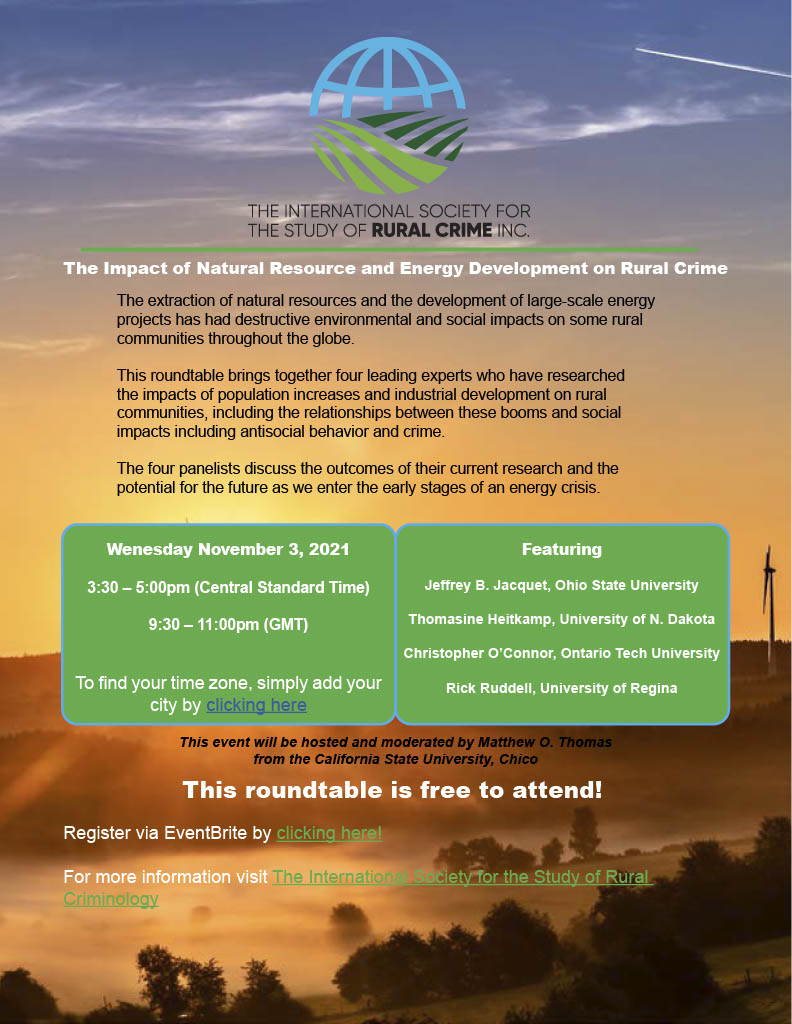
 The event will be hosted and moderated
The event will be hosted and moderated Inspector Farica Prince
Inspector Farica Prince Chief Rob Davis
Chief Rob Davis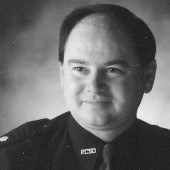 Chief Jim Davis
Chief Jim Davis Mark Prosser
Mark Prosser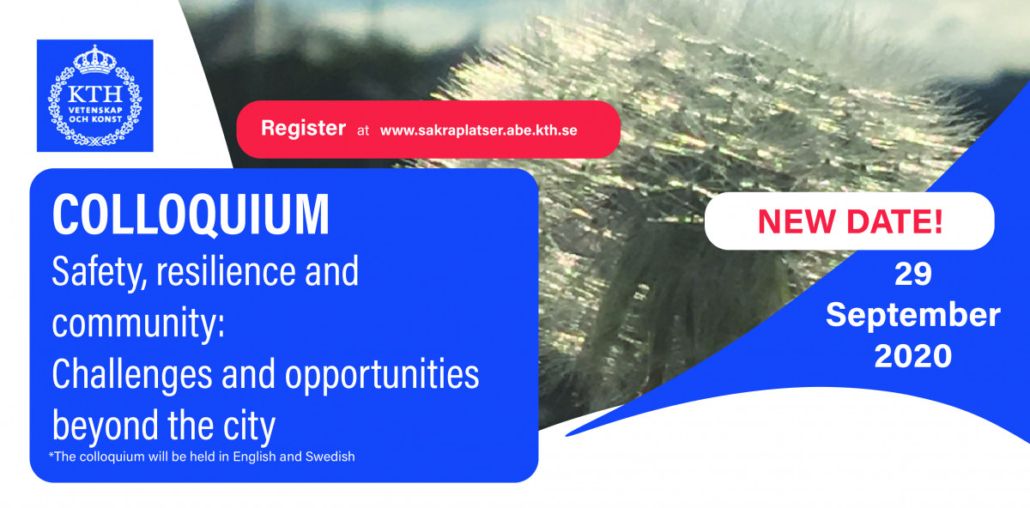
 Dr Danielle Watson
Dr Danielle Watson Dr Liz Curran
Dr Liz Curran Emeritus Professor Joseph F. Donnermeyer
Emeritus Professor Joseph F. Donnermeyer








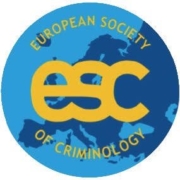 The forthcoming
The forthcoming